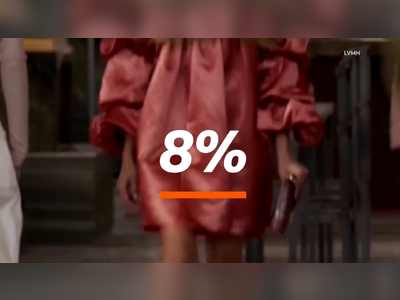EU Elections Overview: Far-Right Gains and Major Political Shifts
The recent EU elections have seen significant political shifts across Europe. In France, far-right support surged with Marine Le Pen’s National Rally positioning Jordan Bardella as a future prime minister. Germany's far-right Alternative for Germany party excluded its scandal-hit candidate from the European Parliament delegation, and Sweden saw a decline in far-right support in favor of the Greens.
The recent EU elections have marked significant political shifts across Europe.
In France, President Emmanuel Macron rejected his Prime Minister's resignation offer following a surge in far-right support.
Marine Le Pen's National Rally (RN) triumphed over Macron’s central alliance, positioning 28-year-old Jordan Bardella as a potential future prime minister.
Bardella, who joined the National Front at 16, was strategically appointed leader to facilitate Le Pen’s 2027 presidential bid.
In Germany, the far-right Alternative for Germany (AfD) party secured 15.9% of the vote but excluded scandal-hit candidate Maximilian Krah from the European Parliament delegation.
Chancellor Olaf Scholz expressed concern over the rise of far-right tendencies.
Meanwhile, Sweden bucked the trend with the far-right Sweden Democrats experiencing a decline in support, giving rise to the Greens and other parties.
In Spain, following poor election results, Labour Minister Yolanda Diaz stepped down as leader of the left-wing Sumar alliance.
The current EU Parliament now comprises parties like the centre-right European People’s Party (EPP), the centre-left Progressive Alliance of Socialists and Democrats (S&D), and Eurosceptic groups like the European Conservatives and Reformists (ECR).
In France, President Emmanuel Macron rejected his Prime Minister's resignation offer following a surge in far-right support.
Marine Le Pen's National Rally (RN) triumphed over Macron’s central alliance, positioning 28-year-old Jordan Bardella as a potential future prime minister.
Bardella, who joined the National Front at 16, was strategically appointed leader to facilitate Le Pen’s 2027 presidential bid.
In Germany, the far-right Alternative for Germany (AfD) party secured 15.9% of the vote but excluded scandal-hit candidate Maximilian Krah from the European Parliament delegation.
Chancellor Olaf Scholz expressed concern over the rise of far-right tendencies.
Meanwhile, Sweden bucked the trend with the far-right Sweden Democrats experiencing a decline in support, giving rise to the Greens and other parties.
In Spain, following poor election results, Labour Minister Yolanda Diaz stepped down as leader of the left-wing Sumar alliance.
The current EU Parliament now comprises parties like the centre-right European People’s Party (EPP), the centre-left Progressive Alliance of Socialists and Democrats (S&D), and Eurosceptic groups like the European Conservatives and Reformists (ECR).
Translation:
Translated by AI
AI Disclaimer: An advanced artificial intelligence (AI) system generated the content of this page on its own. This innovative technology conducts extensive research from a variety of reliable sources, performs rigorous fact-checking and verification, cleans up and balances biased or manipulated content, and presents a minimal factual summary that is just enough yet essential for you to function as an informed and educated citizen. Please keep in mind, however, that this system is an evolving technology, and as a result, the article may contain accidental inaccuracies or errors. We urge you to help us improve our site by reporting any inaccuracies you find using the "Contact Us" link at the bottom of this page. Your helpful feedback helps us improve our system and deliver more precise content. When you find an article of interest here, please look for the full and extensive coverage of this topic in traditional news sources, as they are written by professional journalists that we try to support, not replace. We appreciate your understanding and assistance.











